"Like, whose house is that clean all the time without some sort of help?"
Navigating momfluencer culture as a new mom with L'Oreal Thompson Payton
It’s still hard for me to describe what it felt like to be a first-time mother in those early weeks of vaginal bleeding and colostrum leakage. I had had an “easy” pregnancy, by which I mean I didn’t experience much pain or discomfort, and my worst side effect was probably fatigue in the first trimester. My labor and delivery were uncomplicated (and went about as smoothly as such things can go), and I was treated with care, respect, and dignity throughout.
On the first night home, Brett and I took photos of our new little glowworm baby all swaddled up in his side-sleeper bassinet thing. We took more photos of our nugget of a dog sniffing the baby curiously. It felt very archetypal “first baby moment-y” that first day home. Or maybe two.
Until it didn’t.
Maybe I started feeling decidedly not myself because of hormones. According to Today’s Parent, “right after giving birth, your estrogen and progesterone levels drop dramatically, which can contribute to the “baby blues” (mood swings, anxiety, sadness or irritability, which resolve within a week or so of birth) or postpartum depression (similar symptoms that are more intense, last longer and interfere with your daily life.”
I had been warned about “baby blues” in the hospital during discharge (and will someday write an ode to my rage for the infantilizing, cartoony phrase itself). And since my general feeling of detachment and disorientation probably arose on day 4 or 5 post-birth, maybe “baby blues” was initially to blame for me feeling like I was in a bubble in which I could see everything happening around me but I couldn’t connect with any of those people or any of those happenings.
But after a few weeks of feeling bubble-bound, it was clear that what I was experiencing was no adorable case of “baby blues.” It was postpartum depression. And postpartum dissolution. And postpartum bewilderment. And postpartum matrescence. And postpartum existential crisis.
This is all to say that I can’t FATHOM being a new mom today, when the branding and selling of motherhood online is everywhere all at once whether you seek it out or not. As soon as you so much as google “nursing pads,” you will be targeted by diaper companies, bottle nipple companies, gripe water companies, BPA-free everything companies. You will start to see mamas everywhere. Mamas selling you baby slings. Mamas pushing the best stroller that money can buy. Mamas making the best version of mushed-up sweet potatoes for the best possible first bite of solids. Mamas crafting the best nursery decor out of field foraged lavender (or something). Mamas being the Best Mamas.
Even if you haven’t slept or showered in days and you’re struggling to put sentences together and can’t watch anything longer or more intellectually challenging than Schitt’s Creek (I’m a Schitt’s Creek super fan - this is not a dis!), if you have a smart phone and enjoy the occasional social media scroll, you will be bombarded with how to be the Ideal Mother.
What does this do to new moms?
L'Oreal Thompson Payton is a Chicago-based, Baltimore-bred author, journalist and speaker. She’s working on a book described as "a pocket-sized pep talk to walk with you through any obstacle in your career or personal life," and she also writes a newsletter, and is on Instagram and Twitter, where you can find her tweeting disarmingly honest and infinitely relatable stuff like this.
L’Oreal’s tweets about new motherhood always elicit a visceral response for me. I alternatively want to hug her and assure her that everything she’s doing or not doing is JUST RIGHT and also want to rage about how our culture’s worship of an ideal mother that has never really existed and never can exist thanks to a dearth of structural support, leaves new moms like L’Oreal feeling alone, bewildered, and ultimately, like they might be doing something wrong when it’s the CULTURE that’s doing [nearly everything] wrong. I see myself so clearly in L’Oreal’s vulnerable, motherhood-centric tweets, and when I reached out to see if she might want to talk to me about how she’s navigating new motherhood in 2022, when the selling of motherhood as an aspirational lifestyle is at an all-time high, I was so glad she said yes.
Can you tell me a little bit about your personal and professional relationship with momfluencer culture? For my purposes, I'm interested in both monetized momfluencers (who post sponsored content, have brand partnerships, etc), and anyone who uses social media to perform and interrogate her own motherhood.
It’s so funny you ask that because I definitely wasn’t even aware of the term momfluencer before I started following you. And I don’t really follow many of them. I think the “momfluencers” I do follow tend to be Black and brown women I was following before they became moms and now they happen to be at this stage of their lives and so am I.
How has your thinking about how motherhood is portrayed on social media changed since having a child?
I’m not sure how much my thinking has changed because I was always quick to call bullshit beforehand having been around my mom friends before I became a mom. Like, whose house is that clean all the time without some sort of help? I’m not at all interested in portraying or performing some sort of ideal/perfect version of motherhood, nor do I have the time. So I aim to keep it real at all times in my own time–the good, the bad and the ugly.
I've spoken to a lot of people who consumed momfluencer content pre-kids who feel VERY differently about certain momfluencers post-kids. Do you relate at all? Are there any women you used to follow that you've stopped following since having kids?
Unfortunately (or fortunately?), I can’t relate. Lol. There have been brands/accounts, specifically ones that lean super hard into the #BreastIsBest narrative, that I’ve stopped following, but that’s about it.
People have ALL SORTS of reasons for following momfluencers. Some follow people for recipe inspo, some follow people for style inspo, some follow people for parenting advice. Some people follow people whose lifestyles or social justice beliefs they aspire to emulate. Some people follow people who enrage them! Who do you find yourself gravitating to as a new mom? Who has helped your transition into motherhood, and who has hindered or complicated it?
Quite honestly, I find myself gravitating away from momfluencers and more toward the moms friends I know IRL and online. I can’t even tell you the amount of times I’ve tweeted during late-night feedings in those early months and my Twitter Moms, as I affectionately call them, have always been there for me. Some of these women I know IRL, but the majority of them I’ve never met in person (and truthfully, probably never will because life).
I distinctly remember when I tweeted about two months or so into our breastfeeding journey about wanting to quit (despite my goal of wanting to make it to at least six months) and these incredible women sent me so much virtual love, support and encouragement. It meant–and still means–the world to me. They’ve sent me recommendations for sleep sacks; documents on sleep training; advice on a plethora of parenting topics.
She’s not a momfluencer, per se, but one of my former editors and Twitter mom friends Anna Maltby has talked me off the proverbial ledge numerous times regarding sleep training, starting daycare and supplemental feedings–arguably three of the things I’ve been most anxious and worried about as a first-time mom. She has quite literally saved my sanity and I’m forever grateful.
And @whereisbriggs on Instagram because we recently completed our first flight with our then six-month-old and I was feeling really anxious beforehand, but felt more confident after seeing her tips.
Oh and @terrademama because I needed reassurance and resources around infant/newborn sleep.
My first kid was born in 2011 WAY before momfluencer culture so heavily permeated our cultural understanding of what and who a mother can be. And for that I'm very grateful. I was already an anxious, insecure, exhausted parent, and I can't imagine how consuming others' rosy-colored portrayals of motherhood might have impacted my parenting decisions, my relationship to motherhood, or my mental health. As someone who became a mother so recently (when momfluencer culture is EVERYWHERE) I would love your thoughts on this!
I’m also an anxious, insecure and exhausted parent, so I can certainly relate. And thankfully somehow I’ve managed to escape or not be subjected to as much momfluencer culture . . . probably because the majority of these women don’t look like me, share a similar background and/or ideology. I’ve very big on protecting my mental health, especially on social media, so I like to think I’ve done a pretty good job of curating my newsfeed to not include this brand of momfluencing.
A lot of the early "mommy blogs" did a lot of great things in terms of breaking down stigmas (about motherhood, mental health, finding parenting boring, etc). They made so many moms feel less alone. I wonder how momfluencer culture, as it exists now, does with all of these topics. Do you find yourself feeling less isolated and less overwhelmed by new motherhood because of momfluencers? If yes, I'd love to know which ones!
I’d say I feel less isolated and less overwhelmed because of the real-life and virtual community of moms I’ve cultivated. I’m among the last in my friend group to become a mom, so thankfully I can turn to them for advice. I probably text my college roommate at least once a day asking “is this normal?”
As for momfluencers, it’s funny because I don’t think of them as that. I’ve been following women like Bri Braggs and @MissBeeBright for a while and we all recently had babies around the same time, so that definitely makes me feel less alone.
And Regina Townsend of The Broken Brown Egg has helped me and my mental health tremendously through our IVF journey and later dealing with perinatal and postpartum depression, so I’m truly grateful for her and the community she’s built.
How has momfluencer culture impacted you as a consumer of "mom stuff?" When I first became a mom, I legit texted my cousin's wife (the only person my age who had had a baby before me), and just asked her what to put on my baby register/what to buy, because I had no clue how else to source this info. Things are SO DIFFERENT now. Have you found the wealth of momfluencer product recs helpful, overwhelming, unnecessary, all of the above?
OMG, I’ve definitely sent that text several times and it’s funny because now I find myself on the receiving end and it feels like a rite of passage. I love getting that text! I’ve found more value in product recs from my real-life and social media friends. I have a former coworker whose daughter is exactly two months older than mine and when they started solids, I was like tell me where you got everything because we hadn’t put any of that stuff on our registry (I hadn’t thought that far ahead) and I was in a panic. But she posts stories every day of what they’re feeding her, so I asked about the products (high chair, bibs, plates, etc.) and also their approach, which ended up being Solid Starts and she so helpfully shared resources and links. It was so helpful!
Do you use social media to explore your own motherhood? Whether through posting photos of your baby or writing about motherhood experiences? If so, how has that been? I sometimes wonder if working through my own complicated feelings of motherhood online would've helped (or hindered) my at-times painful identity shift?
Absolutely. I don’t know any other way. As a journalist and a millennial, it’s pretty much par for the course. It’s been quite cathartic, honestly. I did wait a week or so to announce that she was born, to take some time for ourselves as a family of three.
We had a lot of people rooting for us during our infertility/IVF journey, so it makes me happy to share our success story because the path was not linear by any means. I enjoy getting DMs from people around the world who’ve read my stories about our struggles and they see our daughter on my page and they feel a renewed sense of hope. It’s a wonderful feeling!
And I’ve continued to document our journey in real time both on social media and in my writing because I want to provide a real, honest look at motherhood, especially from the perspective of a Black mom. My feeling has always been I know I’m not the only one going through this, so if I can use my gift, my voice, my platform to help other people, in this case other moms, feel less alone, then that’s what I’m going to do.
Thank you L’Oreal!
I know there are at least a few new moms out there (because you’ve emailed me the NICEST emails about reading this newsletter at 2AM while feeding newborns and seriously there is no greater compliment). I’d love to hear more stories about traversing the identity shift (and priority shifts, and practical shifts, and relationships shifts, and, and, and) that attend new motherhood, and in particular, I’d love to know how your relationship with momfluencer culture has impacted your becoming as a mom. One thing that really struck me from L’Oreal’s experience is that despite her sometimes feeling like an “anxious, insecure and exhausted parent,” she hasn’t been as negatively impacted by the pressures of the mamasphere because (in part) the mamasphere still very much skews super white, politically conservative, and adheres to traditional heteronormative values (she didn’t see herself represented in those momfluencer circles so she opted out). I’m curious about how our various identities might make us more susceptible to both the positive and negative influences of momfluencer culture.
Is this the type of thing you’d like to see explored in more depth in a special series? If you have thoughts, just reply to this email! I’d love to hear them! And as always, please share far and wide. I appreciate it!

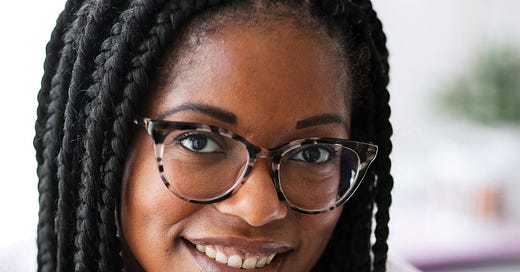


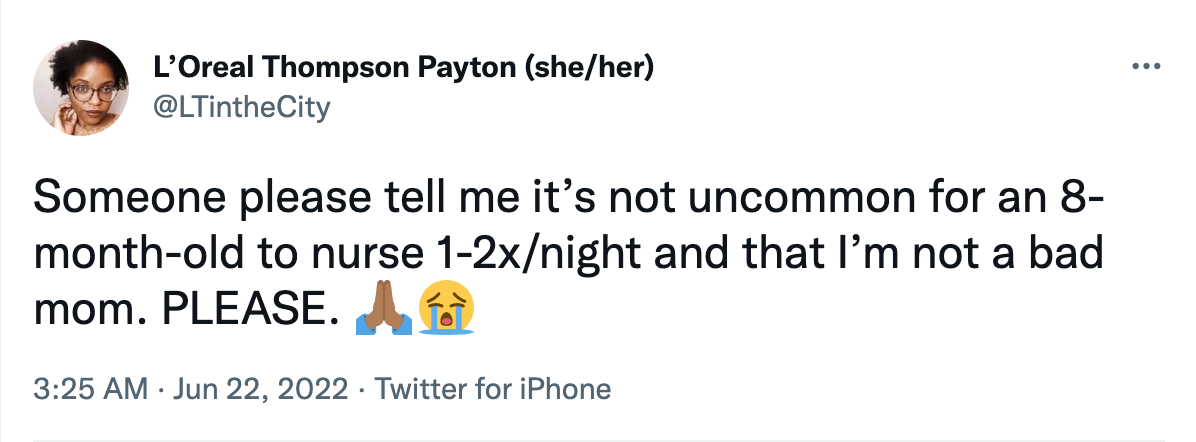

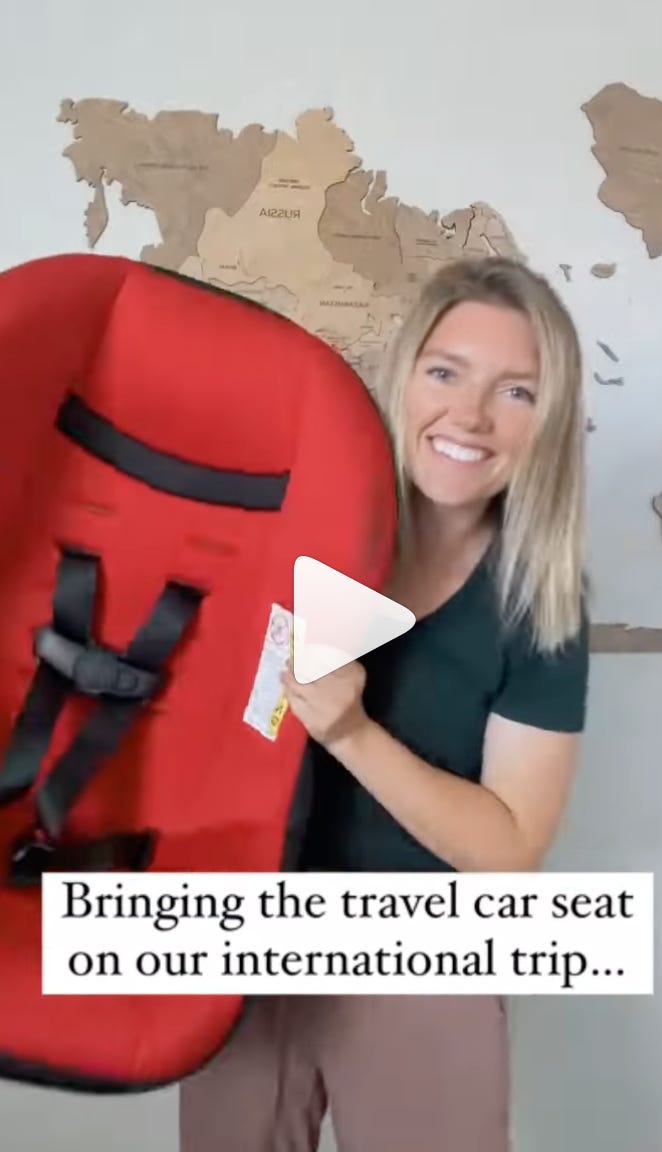
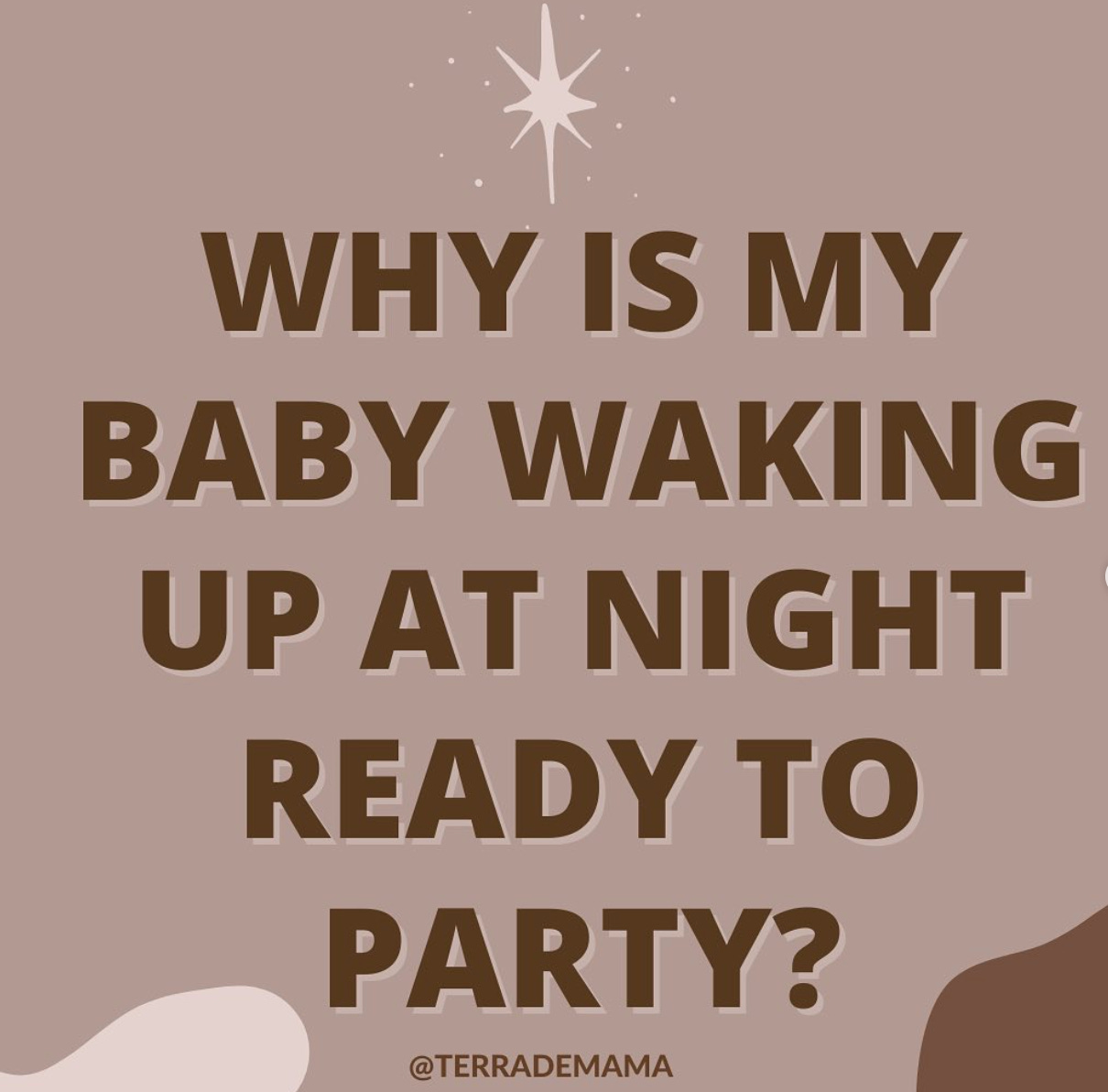
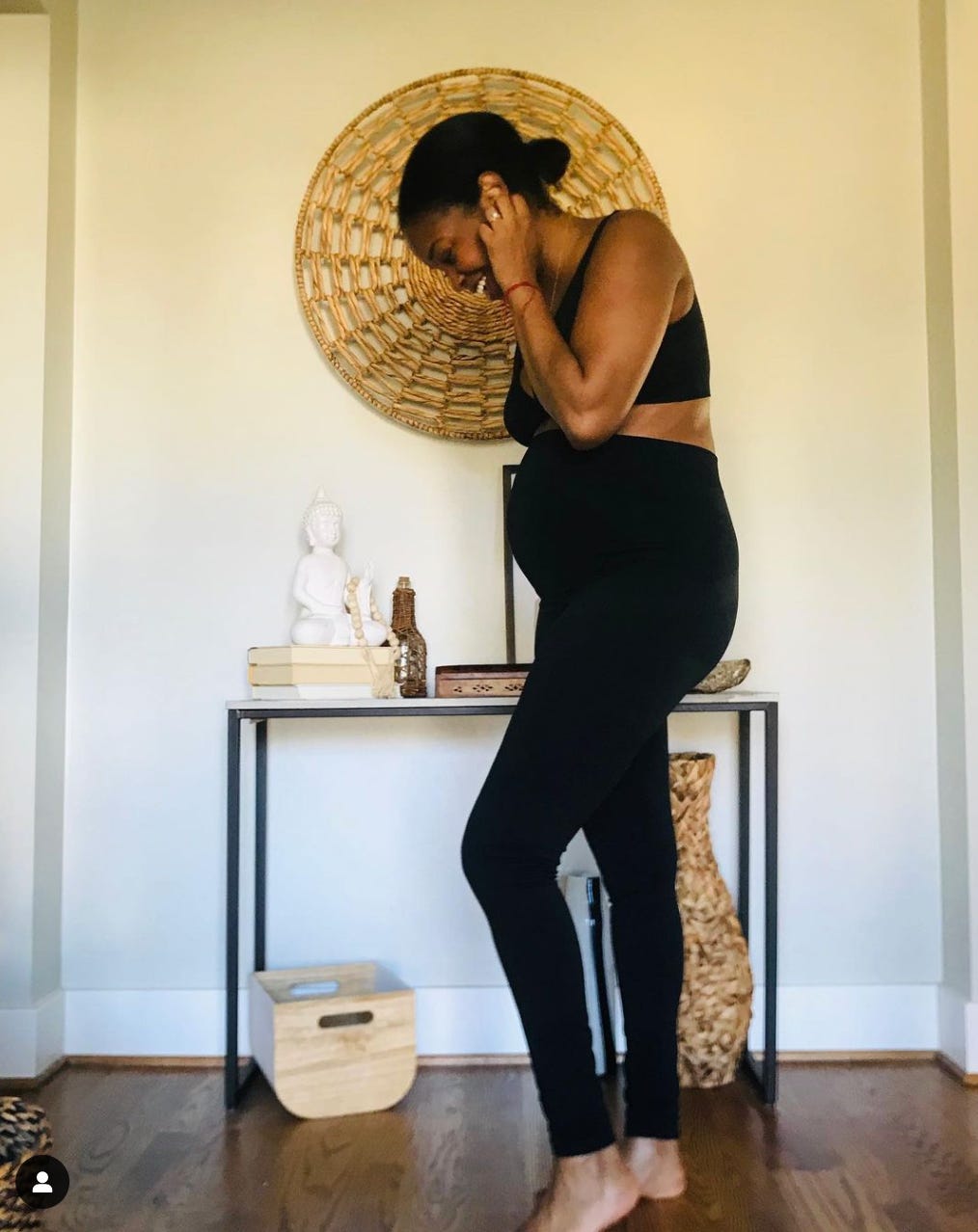
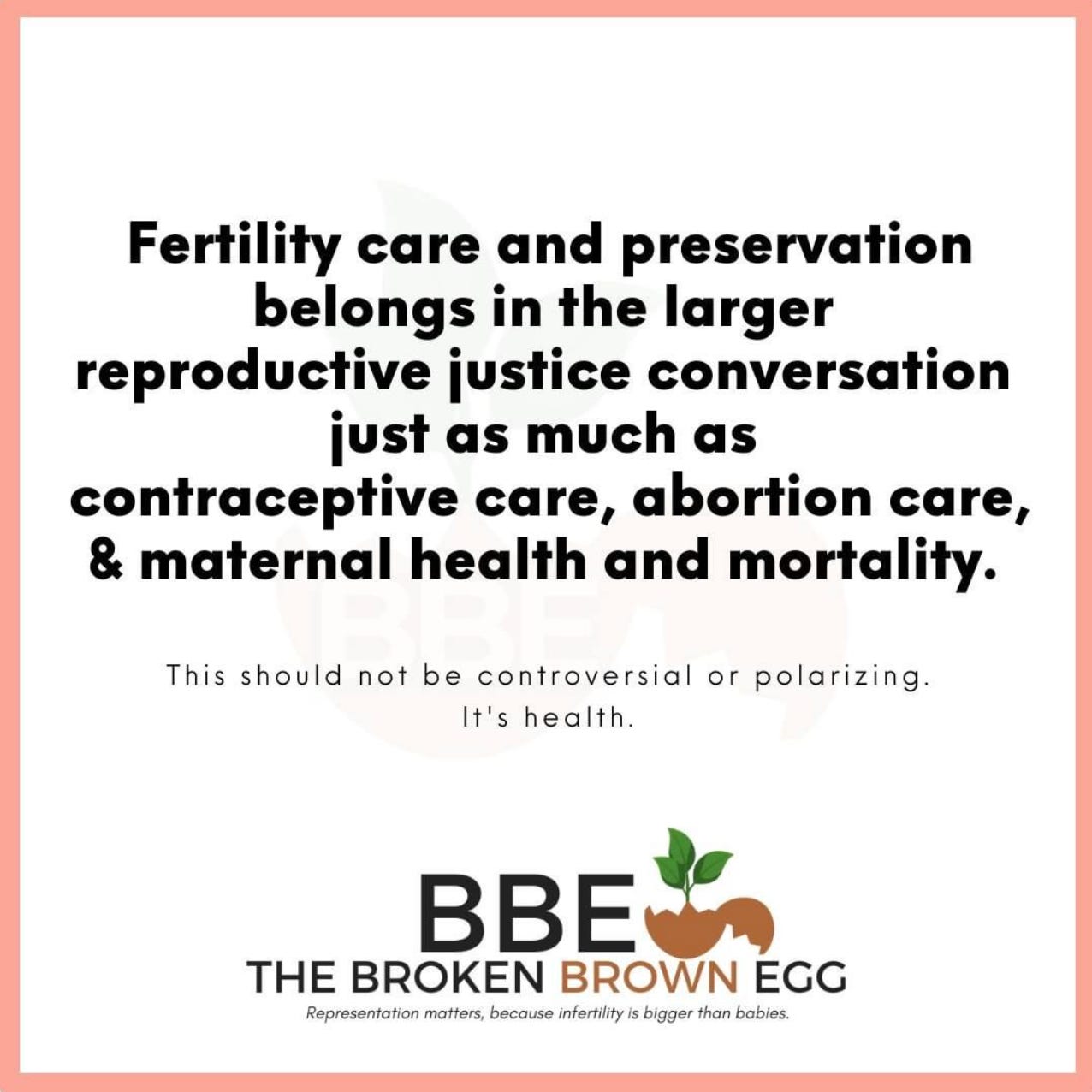
I would say that I always noticed that momfluencer culture is so much about "the stuff." You need this! You need that! I took it as a personal challenge to see just how little I could get away with. Aside from the essentials like a crib, clothing, diapers/wipes, etc. I tried to see just how little we could get away with. We only bought something when it turned out the item would be actually useful to us. Our kiddo is almost three and I still follow that idea.